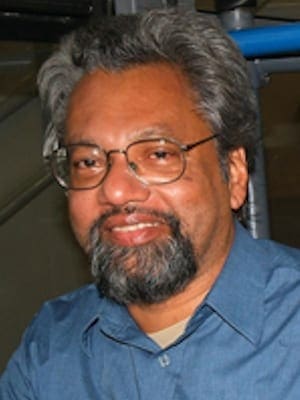India, the world’s largest democracy, is currently involved in a general election process that will take many weeks to execute.
Cynics have often raised the question of what democracy can mean in a country where as much as a quarter of the population cannot read or write and where politics has not only been caste-based but has involved the buying of mass votes by politicians.
Similar questions were asked of me during a recent visit to Thailand. The latter has far better indicators of social welfare than India but a shorter history of democracy.
Although never colonized, military rule only ended in the mid-1970s – and the military and monarchical establishment continues to exercise a powerful influence on politics.
It is salutary to remember that Western European democracies, such as Spain, Portugal and Greece, were freed from fascist political-military regimes not long before Thailand, and that women in Switzerland were only granted the vote in 1971.
Those in Thailand who vehemently oppose the present government believe it to be manipulated by the corrupt business tycoon and former prime minister, Thaksin Shinawatra, who fled Thailand in 2006.
Thaksin’s economic policies proved very popular among peasant farmers who constitute the bulk of Thailand’s voting population.
Opposition to Thaksin and his supporters comes from a coalition of urban upper and middle-class groups whose slogan is “Reform before Elections.”
They have used intimidation on the streets and at polling stations to scuttle government institutions.
Their argument is that the poor are being duped by rural subsidies that are actually massive scams and that politics in the country is so corrupt that government should be given over to a representative, but non-elected, group of academics and technocrats who can “clean up” corruption and pave the way for a properly functioning democracy.
What is fascinating is that the debates recall the 19th- and early-20th century arguments in Europe about the perils of democracy.
The most perceptive political thinkers of the time – Mill, Constant, Tocqueville and Gladstone – argued passionately for the extension of political and civic liberties but agonized over the specter of mass conformity, the downgrading of public tastes and the “tyranny of the majority” that popular government would bring.
They devised safeguards against this danger, arguing for electoral and constitutional restraints, including entrenched rights that limited the scope of democratic decision-making while making the most of democracy’s potential for good.
There were, therefore, numerous inconsistencies and contradictions in their political positions, not least when it came to dealing with European colonial and imperial rule.
John Stuart Mill, often called the father of modern political liberalism, famously argued that the “barbarous” people of India had to be educated into political liberty by first being subject to British rule.
Not surprisingly, he followed his father into the board of the British East India Company.
There are many illiberal democracies around today. From Putin’s Russia to Museveni in Uganda and Rajapakse in Sri Lanka, despots ground their legitimacy in electoral success.
And in Western Europe, we have seen the rise of far-right political parties that have played to familiar themes of scapegoating new immigrants and demonizing minorities.
It is interesting that while the middle classes of the world resent the populism of politicians who exploit the ignorance of the peasantry, there is little comparable anger at the subversion of democracy by the super-rich.
This, after all, is what is crippling American politics. The Tea Party has not only deeply divided the Republican Party but managed to shut down government in the nation’s capital.
Writing in the 1830s, Alexis de Tocqueville warned that the greatest threat to America’s fledgling democracy lay in the greed of the mercantile class.
Gross economic inequalities destroy social solidarity and subvert democratic participation.
Wherever we happen to live in the world, we know that those who have more resources are able to manipulate public policy in their favor at the expense of those with fewer.
At the same time, to pit freedom from want against freedom of thought and speech is to perpetuate a false dichotomy.
“If someone takes away your bread,” wrote Albert Camus, “he suppresses your freedom at the same time. But if someone takes away your freedom, you may be sure that your bread is threatened, for it depends no longer on you and your struggle but on the whim of a master.”
Where freedom is not cherished by a significant portion of the citizenry, and where people care more about their own sectional interests than the common good, liberal democracy cannot flourish.
Moreover, de Tocqueville observed, “Liberty regards religion as its companion in all its battles and its triumphs, as the cradle of its infancy and the divine source of its claims. It considers religion as the safeguard of morality, and morality as the best security of law and the surest pledge of the duration of freedom.”
Therefore, Christians engaging in the public sphere should not be defending an abstract “democracy,” but rather the liberal values, which are also Christian values, on which a democracy that respects and safeguards the rights of all people ultimately rests, and then to argue that if such values, embedded in appropriate political institutions, are to take root we have to nurture a public culture that prizes both the love of freedom and voluntary self-restraint for the sake of the common good.
Thus, contrary to some understandings of political liberalism, we cannot exclude moral and religious discourse from the public sphere.
 Vinoth Ramachandra is secretary for dialogue and social engagement for the International Fellowship of Evangelical Students. He lives in Sri Lanka. A version of this column first appeared on his blog and is used with permission.
Vinoth Ramachandra is secretary for dialogue and social engagement for the International Fellowship of Evangelical Students. He lives in Sri Lanka. A version of this column first appeared on his blog and is used with permission.
Secretary for dialogue and social engagement for the International Fellowship of Evangelical Students. He lives in Sri Lanka.

